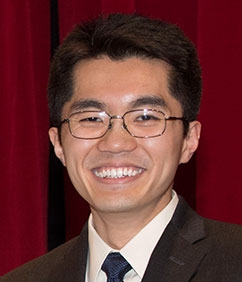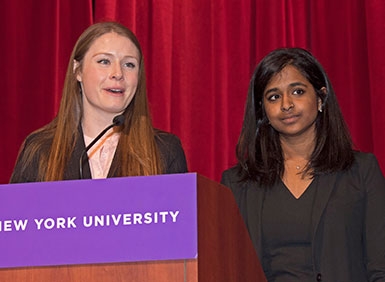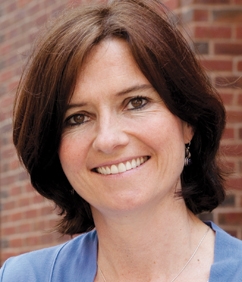Beginning to Think Like a Lawyer: At the High School Law Institute, NYU students teach local high schoolers about the law
On Saturday mornings, before most teenagers are out of bed, high school students from across New York City and New Jersey commute to NYU Law to attend classes at the High School Law Institute (HSLI). This student-run program, created more than 20 years ago, runs annually from October through March and brings together precocious high schoolers with an interest in the law and teams of current NYU Law students who teach them.
The HSLI class of 2017 comprised 104 students in five sections, taught by 27 teachers. HSLI describes ideal students for the program as those who recognize the impact of the legal system, wish to learn more about how it concretely impacts society, and are preparing themselves to serve and advocate for others. Alongside a sister program at Columbia Law School, HSLI offers free academic programming in constitutional and criminal law as well as mock trial and moot court. Each lesson contains background information, discussion questions, classroom activities, and homework. “The kids we serve are committed to thinking deeply,” says HSLI chairman Andrew Wong ’18, who was a classroom teacher before entering law school. “It’s seeing motivated kids who want to work toward this thing and are self-selected that makes me want to do my best to bring out their interests and to meet their expectations,” he says.
Like Wong, many HSLI teachers have taught in classrooms, have tutoring experience, or have been part of educational organizations including Teach for America and AmeriCorps. For others, it is their first time teaching a large class. HSLI teachers receive initial training and ongoing support throughout the year, and are also provided with detailed curricula created by experienced HSLI instructors and board members.
Similar to their teachers, high schoolers apply to the program for myriad reasons. Some are already considering attending law school and pursuing a legal career, like Erika Castillo, a high school student from New Jersey who calls NYU her “dream school” and recently completed her second year at HSLI. Others have been inspired by fictional television prosecutors. Students can enroll in the program up to four times, and HSLI statistics show that students generally return at least once. “I had a really good first year, and I definitely learned a lot,” says Castillo. “I spent the whole week looking forward to Saturdays and going to HSLI. When I found out they had a second year, I had to do it.”
To engage students as much as possible, teachers apply potentially complicated or esoteric legal concepts to contemporary issues that are more likely to pique the interests of younger people. “If you strip away some of the [legal] jargon, I’ve never had a situation where kids aren’t able to perform intellectually at the level that either I want them to be or that the concepts require them to be,” Wong says.
Madhuri Swarna ’19 says that she was incredibly proud of her students during the competition. “They all got up and embraced the fact that they’re speaking in front of a practicing attorney who’s judging them, and they did it with confidence and poise.” Swarna, who had never taught a large class before, says that her experience with HSLI has affected her career aspirations: “I always knew I wanted to get into academia eventually, but HSLI made me realize how much I actually love teaching. It made me seriously consider a career in academia after doing litigation for a while.”
While there are many factors that contribute to HSLI’s success, Wong suggests that a “core appeal” of the program is the model of law school students with access to accomplished faculty who are willing to teach. “The reason I went to NYU Law in the first place is that this school has the strongest commitment to social justice and to broadening young people’s horizons,” Wong says. “I feel like HSLI is a great way of tying together both of those things.”
Posted April 3, 2017




